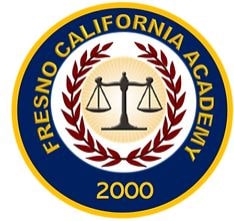You can get A+ in all your HomeWork Assessments.
Build an indepth, rock-solid understanding in Math, ICT, ComputerSciences, Physics, SAT®, AP®.
Learners, start here
Boost your knowledge of Advanced Mathematics with expert-guided homework solutions.
Advanced Mathematics Homework HelpQ1: Solve the second-order differential equation: d²y/dx² - 3dy/dx + 2y = 0.
See AnswerThe characteristic equation is r² - 3r + 2 = 0. Solving for r gives roots r = 1 and r = 2. Hence, the general solution is y(x) = C₁e^x + C₂e^(2x).
Q2: Evaluate the triple integral ∭_V (x² + y² + z²) dV, where V is the unit sphere.
See AnswerUsing spherical coordinates, the integral simplifies to ∭_V (ρ²)ρ²sin(θ) dρ dθ dφ, and evaluating gives the result (4π/5).
Q3: Find the eigenvalues and eigenvectors of the matrix A = [[2, 1], [1, 2]].
See AnswerThe characteristic equation is (λ - 2)² - 1 = 0, which gives eigenvalues λ = 3 and λ = 1. The corresponding eigenvectors are v₁ = [1, 1] and v₂ = [-1, 1].
Q4: Prove that the series ∑ (1/n²) converges.
See AnswerUsing the p-series test with p = 2 (where p > 1), the series ∑ (1/n²) converges.
Q5: Solve the partial differential equation: ∂²u/∂x² + ∂²u/∂y² = 0 (Laplace's equation).
See AnswerThe general solution is u(x, y) = F(x + iy) + G(x - iy), where F and G are arbitrary analytic functions.
Q6: Find the Fourier series of the function f(x) = x² on the interval [-π, π].
See AnswerThe Fourier series of f(x) = x² is given by a₀ + ∑ (aₙcos(nx)), where a₀ and aₙ are the Fourier coefficients. The calculation results in a specific Fourier expansion.
Q7: Evaluate the contour integral ∮_C (z² + 1)/(z - 1) dz, where C is the circle |z| = 2.
See AnswerUsing the residue theorem, the residue at z = 1 is 2, so the contour integral evaluates to 4πi.
Q8: Show that the determinant of a skew-symmetric matrix of odd order is always zero.
See AnswerSince the determinant of a skew-symmetric matrix equals its negative and the matrix has odd order, the determinant must be zero.
Q9: Find the Taylor series expansion of f(x) = e^x at x = 0.
See AnswerThe Taylor series of f(x) = e^x at x = 0 is ∑ (xⁿ/n!), where the sum runs from n = 0 to infinity.
Q10: Prove that the integral ∫₀^∞ e^(-x²) dx converges and find its value.
See AnswerThe integral converges and is known as the Gaussian integral. Its value is √π/2.

Based on the Questions of the homework that Student ask, we create Customized QUiz that increases the domain knowledge of the Student. This also extends and enlarges the Student cognition that aids and supports Creativity.

All Solutions are Created by Experts and is checked and double checked to ensure Accuracy and Precision. For Science, ComputerSciences and Mathematics, Rules and Laws ought to followed to the Jot, if not as the popular rule of Computers says, "garbage in, is garbage out". At Fresno’s Academy we are Perfectionists.

To ensure that learning takes place and that the Stuent has well invested the time to upgrade and upshill knowledge we at Fresno Academy, create Step by Step Video solutions of the entire list of Questions associated with the topic for the Student. This will ensure reinforcement and will increase Student confidence to tackle future challenges.





"With every question that I asked to Fresno Academy, I received detailed step by step solutions with illustrated examples, and that greatly helped me to get into one of the top Universities to pursue my Engineering."
We train, prepare and equipp Students to support their entire classroom subject requirements and beyond. 95% of US students always keep coming back to Fresno Academy for our meticuosly efficient Homework support.
Build an indepth, rock-solid understanding in Math, ICT, ComputerSciences, Physics, SAT®, AP®.
Learners, start here
"I come from a poor family. At home it's one room, just a room we live in. When I was a child, I used to fear Mathematics and Physics. But now, I am in love with Mathematics and Physics because of Fresno Academy."
